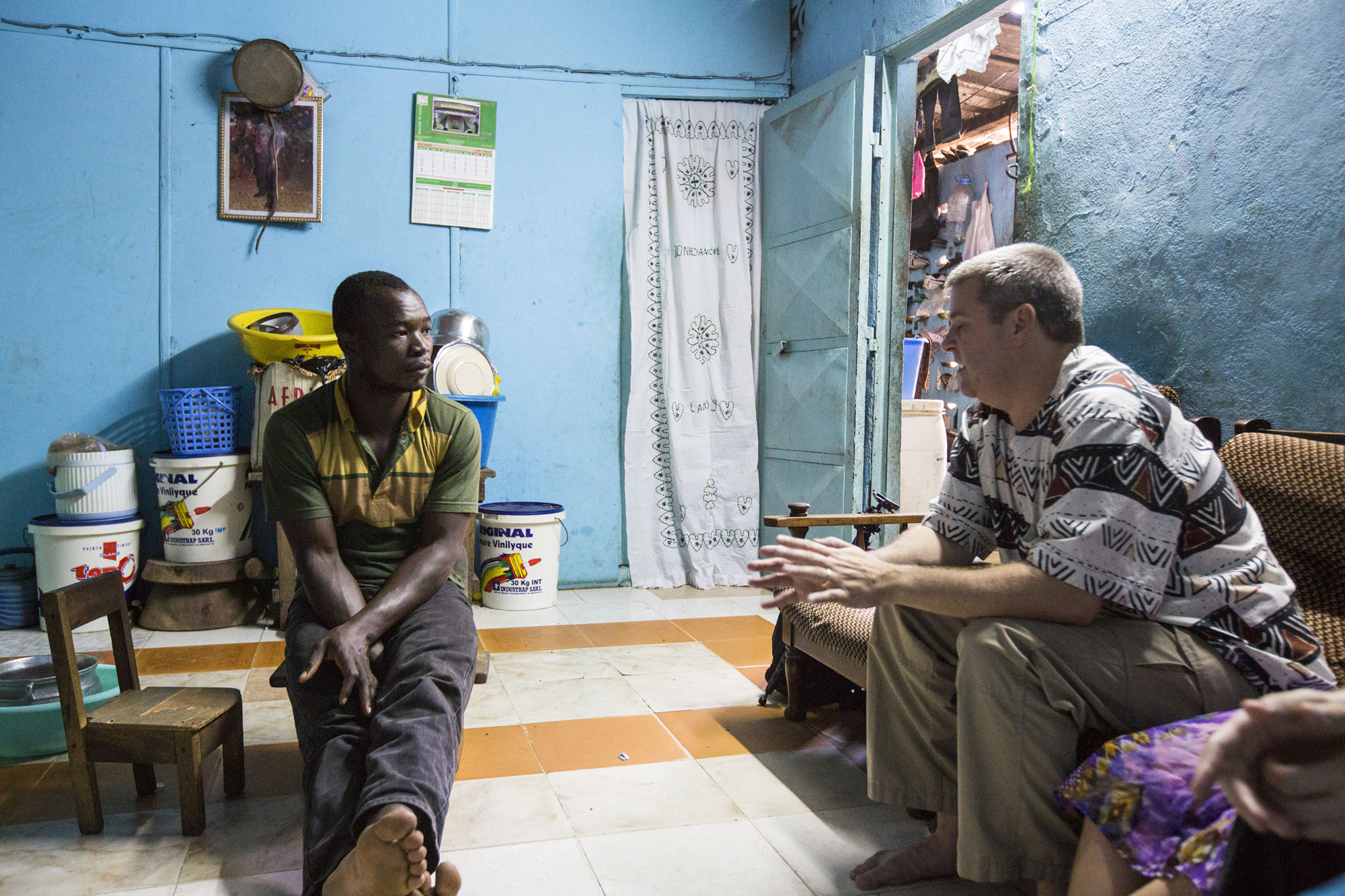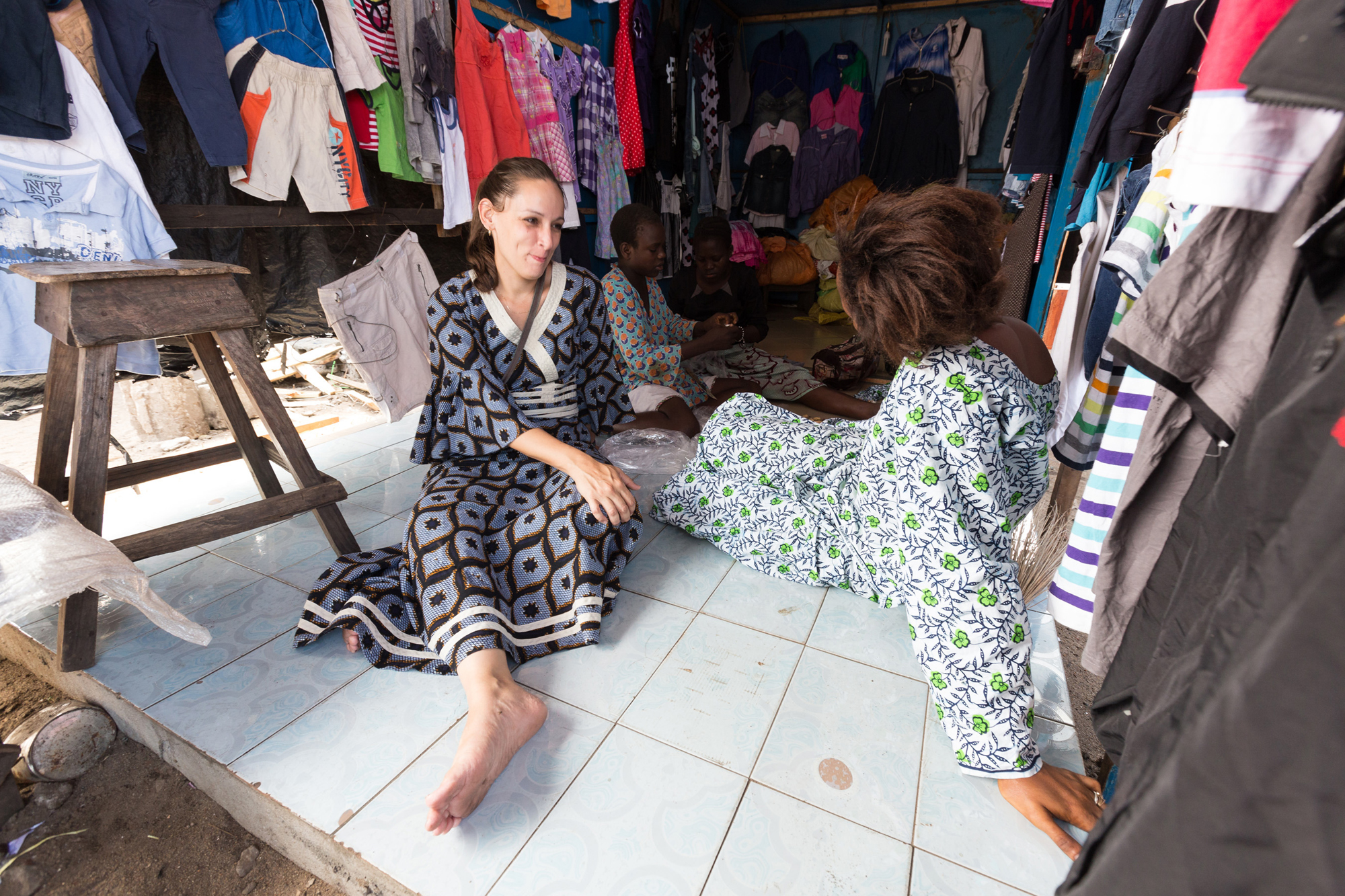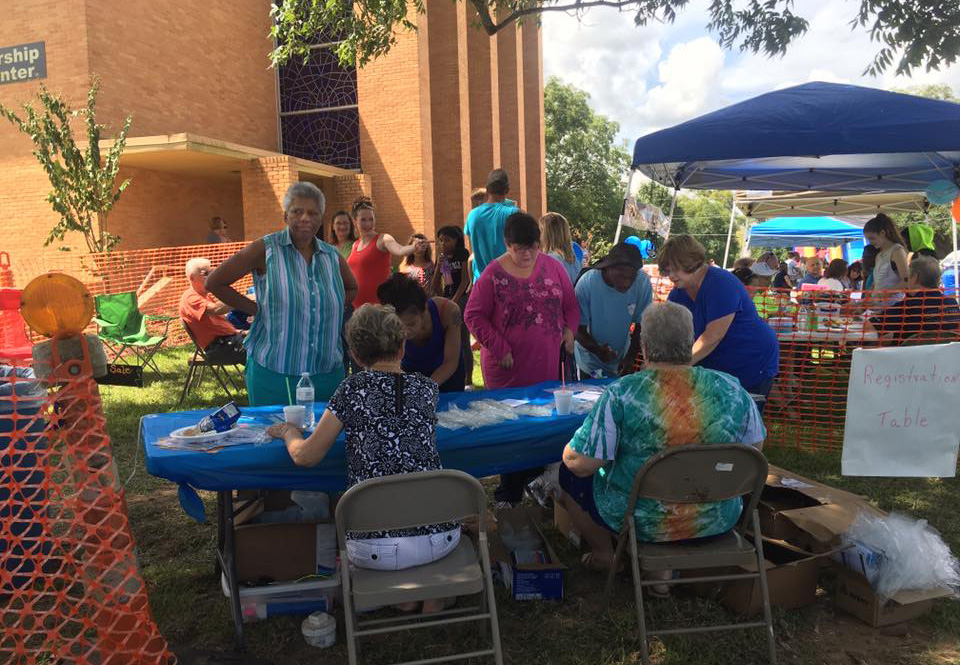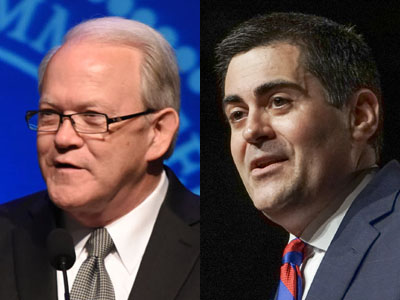
[SLIDESHOW=39441,39442]EDITOR’S NOTE: Ivory Coast was the country of focus for the 2014 International Mission Study by Woman’s Missionary Union. Find resources to support the study at wmu.com/IMS and imb.org/ims.
ABIDJAN, Ivory Coast (BP) — Mike McAfee weaves the truck through traffic until it finally rolls to a standstill. It looks like bedlam, but it’s just a typical morning in Abidjan.
The roads are wet from recent rains with standing water in many places. Along the roadside are street sellers hawking goods from tables piled high with mangoes, avocados, bananas and small pineapples. Other vendors wave goods outside the truck windows. At a newsstand, several men read the headlines of newspapers tacked up on a wooden board.
McAfee eases through impossibly narrow spaces between vehicles and finally turns onto a less congested street. After a few more lane changes and turns, he pulls into Koumassi, an area east of where he and his family live. The International Mission Board missionary comes to this industrial area at least once a week to visit with Seidou (SAY-doo), a Muslim man who moved to Abidjan from Burkina Faso in 2001. McAfee parks the truck and steps through an entrance leading to a long, narrow way — almost like an alley but called a foyer. Doors on each side lead into rooms where families live.
Seidou is Bissa, an ethnic group that can be found in northeast Ghana, where he was born, and Burkina Faso, where he grew up. He, like many other West Africans, came to Abidjan for work and has been employed as a security guard, but jobs are difficult to find, he said. As he and McAfee start to visit, speaking in French, Seidou talks about work. He hasn’t been paid in two months, he said.
He and McAfee sit in a small entry room. Three doors open out from this room: one for Seidou’s family’s living quarters, another for his brother Issaka’s family and the third for Issaka’s second wife. As the men visit, five or six children, curious about the foreign visitors, wander in and out of the room. It’s summer and school is on break. McAfee’s daughter, Karis, joined him on this visit, hoping to play with Seidou’s niece Sadia. But Karis discovers that Sadia is now in training in a tailor’s shop so she’s at work today. Sadia won’t be returning to school when her brothers start back in the fall. She started working in the tailor’s shop — leaving her school education behind — when she was 11 years old.
It’s all about trying to make a living to support the extended family. When wages don’t come, it impacts the entire family — not just wife and children but sometimes adult brothers and sisters, cousins, aging parents and others.
Learning the stories
On this visit, Seidou brings out a DVD he recently purchased on the street: “Les Dix Commandements,” a French version of the 1956 Cecil B. DeMille epic film starring Charlton Heston as Moses. Seidou knows McAfee will be interested because usually it’s McAfee who shares Bible stories with him.
Seidou speaks fluent French, but McAfee was able to find “The Jesus Film” in Bissa, his heart language, and show it to him on another visit. Today McAfee uses the film on the television as a jumping off point to discuss biblical truths. He also has worked through the Bible with Seidou, sharing many key stories.
“The way we do evangelism in Africa is we tell stories,” McAfee said. “The Bible is one big story and so we break that down. We tell what we call a ‘resume’ of the Bible called Creation to Christ or Creation to Return. That is our evangelism strategy as we go into these communities that don’t have … a Christian presence.”
When McAfee tells a story, he asks the listener three key questions afterward:
— What lesson have you learned from this story?
— What are the characteristics of God?
— Is there something that you need to obey?
These questions help McAfee discover what the listener has heard and give him opportunities to reinforce biblical truths.
Storying is a powerful tool in Africa, McAfee says. “In the States, you tell someone, ‘I want to tell you a story,’ and nobody wants to hear. Here you say that and everyone gathers around,” he noted.
McAfee said Seidou knows the stories and has heard clear gospel presentations. It just comes down to a decision. On this day as they talk, Seidou repeats what he has told McAfee in the past.
“Seidou says he’s conflicted because the Koran says that God doesn’t have a child and the Bible says that Jesus is God’s Son,” McAfee said. “He says, ‘I’m watching all these things to try to figure it out.’
“I [told him] it’s a very important decision because if what Jesus says is true, then the only way to have eternal life is through Him.”
Along with the French version of “The Ten Commandments,” the pirated DVD Seidou purchased includes two other films: “In the Beginning,” a 2000 American made-for-television film telling stories from the books of Genesis and Exodus, and “The Message,” a 1977 film made by a Syrian-American director that tells the story of Islam’s origins.
Praying In Jesus’ Name
Seidou has not only heard and discussed New Testament Bible stories but also seen Jesus’ healing power in his home, McAfee said. One day, Issaka was there as McAfee was sharing with Seidou. Issaka told McAfee that he hadn’t been able to work much for the past 12 years because of back problems. McAfee agreed to pray for healing for Issaka’s back, if he could pray in Jesus’ name.
Since Issaka’s back had hurt for 12 years, McAfee started by telling him the story of the woman who bled for 12 years and visited doctors and mystics but found no one who could heal her until she touched Jesus. “I told him that story, and I told him that what Jesus said to her is very important,” McAfee said. “He said, ‘Your faith has healed you.’ And I said, ‘Issaka, it’s going to come down to your faith and who Jesus Christ is.’
“And so Issaka agreed to allow me to pray for him in Jesus’ name. We prayed, and he didn’t get healed immediately.”
But when McAfee came back the next week, Issaka saw him from a distance. “He came running and he said, ‘Pastor, Pastor, you’ve got to pray for me again.'” McAfee asked him why and Issaka told him that he was “half healed.”
“So I said, ‘Well let’s go in the house and we’ll talk about it,'” McAfee recalled. “So we go in the house and we start talking about having faith in Jesus Christ … and I prayed for him again that he would have faith in Christ and that Christ would heal him. Well again, nothing immediately happened. I went home that day, and I came back the next week. Issaka came running and he said, ‘Pastor! Pastor! Thank you! Thank you! I’m healed!’ and I looked at him and I said, ‘Issaka, you’ve got to remember what I told you two weeks ago that if you were healed that you have to give the glory to Jesus Christ because it would be Jesus Christ that healed you.’ He said, ‘I’ll give the glory to Christ, I’ll give the glory to Christ. I’ll tell everybody it was Jesus that healed me.’
“I would love to tell everybody that Issaka accepted Christ and that Seidou accepted Christ and that the family which was a Muslim family has now all accepted Christ and they’re all going to church, but that’s just not the case,” McAfee said.
“In Africa, it’s so hard for a Muslim to accept Christ. He has to count the cost,” he said. “If Seidou accepts Christ, if Issaka accepts Christ, what is the cost? They might lose their jobs; they might lose their means of support. So he has to count the cost. I know that Seidou is probably counting the cost, and what he decides to do will be after he decides [whether] it’s worth it to follow Christ.”
See additional stories on Mike and Heather McAfee by clicking here, here and here.



















